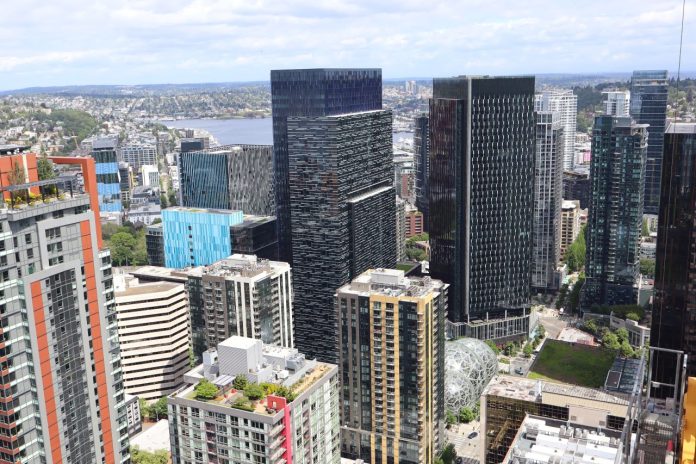
Today, the Sound Transit Board of Directors opted to reject late-breaking South Lake Union (SLU) station alternatives for the planned Ballard Link light rail line. The Seattle Metropolitan Chamber of Commerce lobbied hard for the late “shifted west” additions, arguing the existing proposal’s construction impacts were too severe, especially on Westlake Avenue. Leading chamber members like Amazon amplified those calls, and Vulcan Real Estate (a major landlord in SLU) even funded its own station study, but it was not enough to sway board members.
A staff recommendation against the late additions to the plan proved too much to overcome, with detractors pointing to at least 10 months of delay leading to at least $500 million in added costs for those alternatives. Shifting west would also cost 3,000 daily riders or 2% of Ballard Link’s overall ridership, according to agency projections.
Seattle Mayor Bruce Harrell had questioned the accuracy of those ridership projections and signaled support for the chamber-backed alternatives, but, in his comments at the meeting, he acknowledged he didn’t have the votes to successfully bring a motion or a solution for the added costs and delay risk.
“I’m not going to be making any motion to support a new preferred alternative just because, one, well I could read the tea leaves, but number two, a 10-month delay and a $500 million plus north of that price tag. I think I’d be putting my colleagues at a disadvantage when the City of Seattle is hopefully demonstrated its continued commitment to the entire Link system as passed in 2016,” Harrell said. “I agree with a lot of the support that people advanced toward 5th and Harrison; it makes a lot of sense, but I don’t think there’s any escaping the price tag and the delay.”
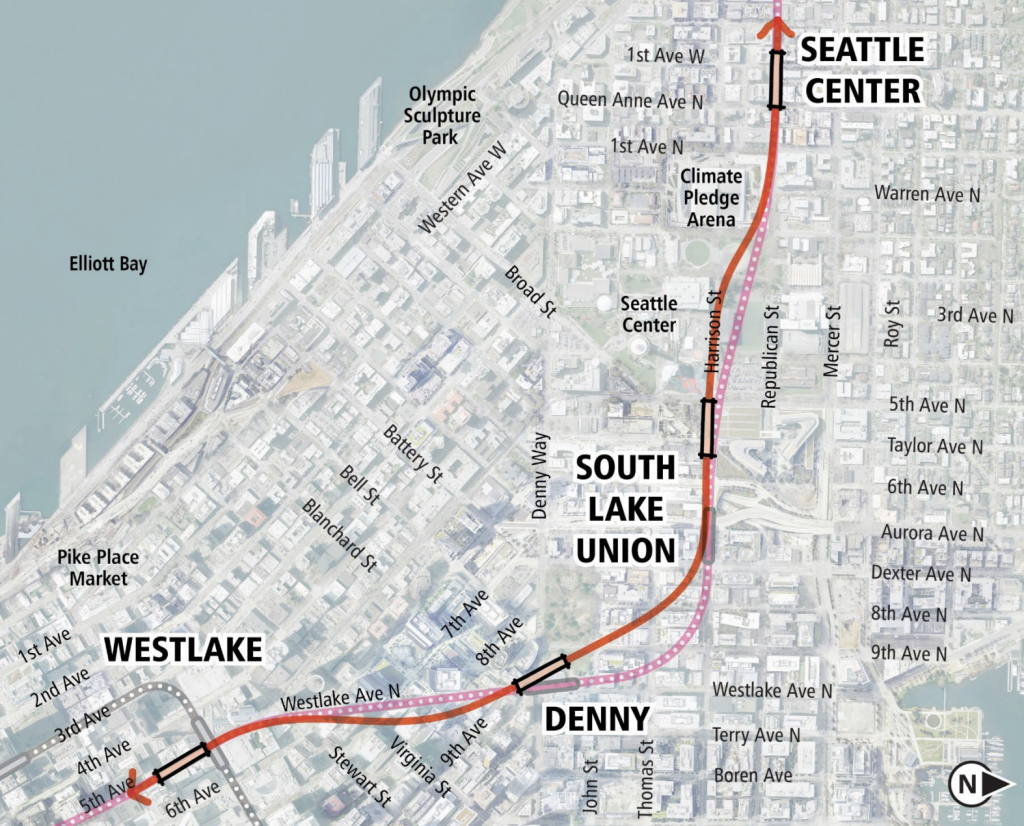
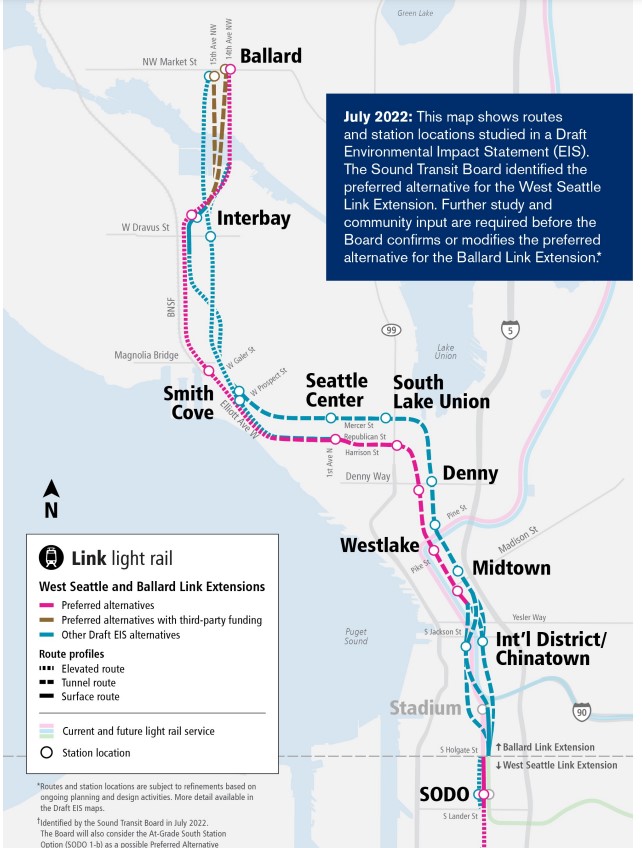
In a statement issued Thursday after the board meeting, Amazon continued to underscore its claim that three years worth of partial road closures on Westlake Avenue would imperil economic recovery in Seattle: “Our goal has always been to preserve and build upon the economic recovery that Seattle is making, improve the commutes of our 50,000 employees who work here, and support the dozens of local small businesses and organizations in the neighborhood that will be impacted. This decision makes it more difficult to achieve this goal.”
But other options were not without their controversy. The shifted west proposal puts the “South Lake Union” station at 5th Avenue N next to Memorial Stadium and the Museum of Pop Music (MoPOP). This alternative kicked up its own group of detractors, including many Seattle Center organizations who raised construction impact concerns of their own. Transit advocacy groups, meanwhile, questioned the location’s ability to offer high quality bus transfers and rallied support for moving forward with the existing plan. The agency’s preferred 7th Avenue and Harrison Street location would offer convenient connections with Aurora Avenue buses.
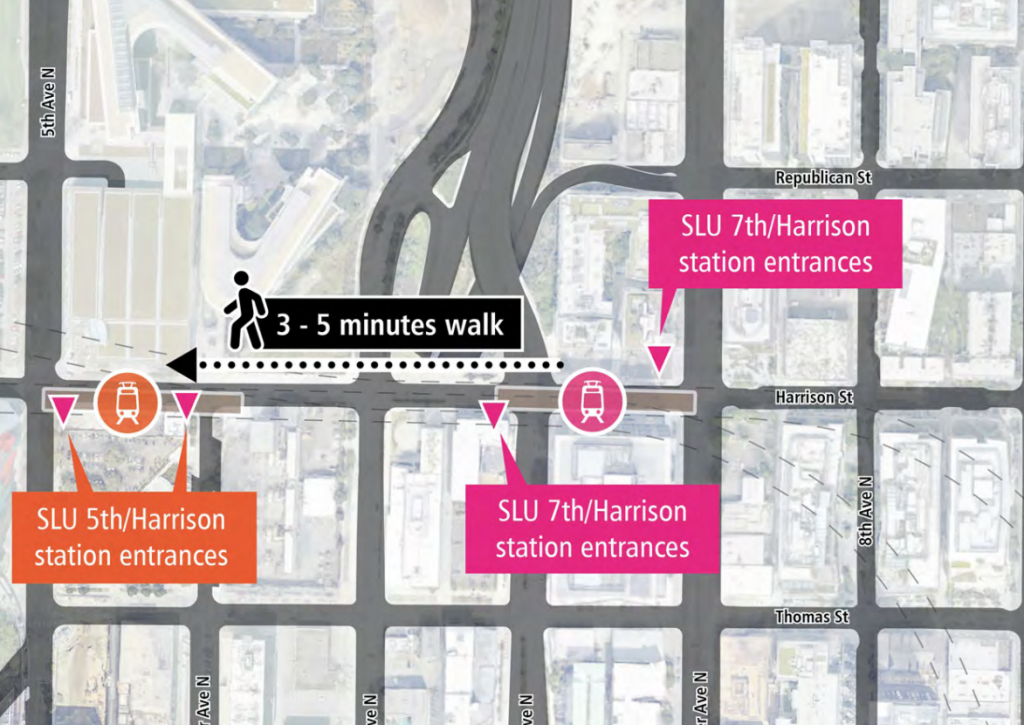
Systems Expansion Chair Claudia Balducci said that the extra time staff had taken to study options had improved the preferred alternative, especially with respect to the construction mitigation plan.
“When you’re building a 100-year system in an area that’s already heavily developed, sometimes you have to thread the needle in ways that are challenging, and I add my thanks to the staff for already coming up with a very significant improvement to the impacts on Westlake that were predicted — that were the cause of so much of the concern in this area,” Balducci said. “I encourage that work to see if we can reduce the impacts even further. This is a key arterial in the city of Seattle that we all should care to minimize impacts as much as we possibly can.”
Last fall, the board voted to make a “Shifted North” Alternative the preferred option for the station under Westlake Avenue at Denny Way. Sound Transit projects this will add $170 million in costs to Ballard Link, but it will lessen the severity of construction impacts on Westlake Avenue, leading it to earn favor.
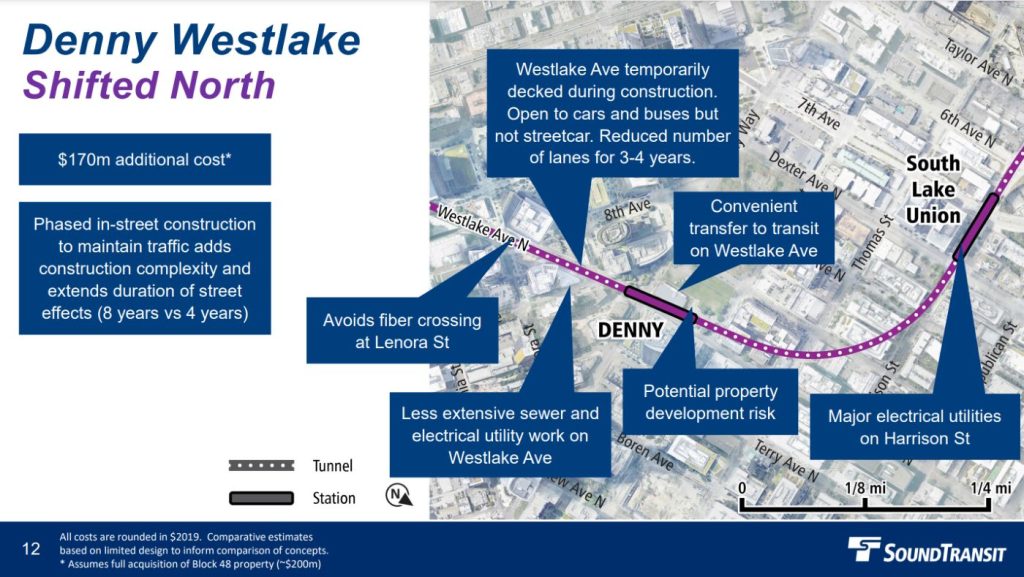
In December 2023, the Sound Transit board unanimously approved the $851,000 study to assess the “Shifted West” station location for the planned South Lake Union Station, an option which could have paired with the shifted west station on Denny rather than forcing the agency to cut the station due to the tight turn radius. That preliminary analysis was completed this spring, but further study would have incurred far greater costs and required adding the option to the project’s second Draft Environmental Impact Statement, which was triggered when the board shifted preferred station locations away from Midtown in Chinatown in March 2023.
Approved in the 2016 Sound Transit 3 vote, the Ballard Link project will eventually advance to its Final Environmental Impact Statement and finally its permitting and construction phase. The project is already four years behind schedule, with its revised opening date of 2039.
Note: The Sound Transit board had been scheduled to vote on its betterments policy on Thursday, but pushed deliberations to a later meeting. Check out our primer on that policy reform.
Update: This article was updated on Friday with Amazon’s statement.
Doug Trumm is publisher of The Urbanist. An Urbanist writer since 2015, he dreams of pedestrian streets, bus lanes, and a mass-timber building spree to end our housing crisis. He graduated from the Evans School of Public Policy and Governance at the University of Washington in 2019. He lives in Seattle's Fremont neighborhood and loves to explore the city by foot and by bike.

